'Anything serious should be said with a hint of comedy.'
'Only then will people understand it better.'
Rediff.com's Patcy N meets the team behind Nanu Ki Jaanu.
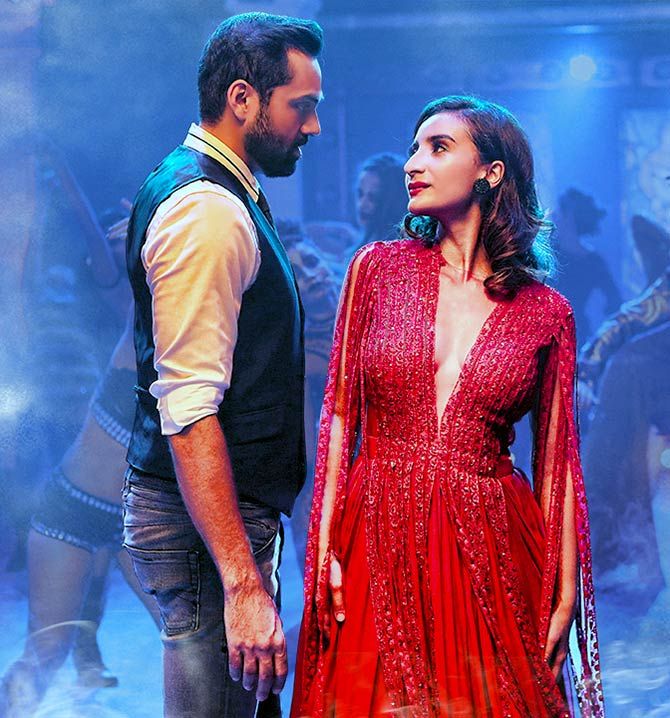
"I write my script very peacefully. But when I have to narrate the script, I read out with all my emotions. I try to hypnotise my director, so that he will cast me in his film. That has been my strategy for years, and it has always worked," Manu Rishi Chadha says with a smile.
Manu has written Nanu Ki Jaanu, which releases April 20, starring Abhay Deol and Patralekhaa.
It is rare for a writer or a character actor to accompany the cast and director for interviews, but Manu obviously has interesting things to say.
"I don't get along with casting directors!" he exclaims.
"I want to write as well as act, but casting directors call me for auditions (and just give me a page of dialogue). I am an old school actor; my process is slow. I believe in understanding the character and for that, I have to read the whole script. But casting directors don't understand that."
"So I don't get work from anyone; I have to fend for myself," he says.
Manu is usually cast in the films he scripts. Does he choose his character while he is writing the film?
"If I choose my character while I am writing the script, I would be dishonest to my craft. I was Abhay Deol's sidekick in Oye Lucky! Lucky Oye! Had I imagined my character when I was writing it, I would have chosen Lucky's role or I would have written my character better than Lucky's," he says.
"My focus has always been the second parallel lead, like the one I did in Oye Lucky and now in Nanu Ki Jaanu, I do a good job," he adds.
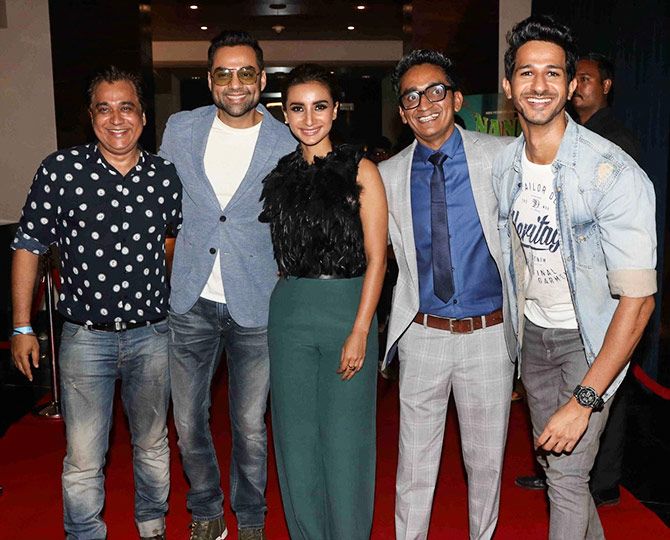
Faraz Haider also acted in Oye Lucky; he also assisted Dibakar Banerjee on the film.
Faraz started his directorial career with a war comedy, War Chod Na Yaar. He switches to another genre -- horror comedy -- in Nanu Ki Jaanu.
"That will be my pattern," he says. "I feel anything serious should be said with a hint of comedy. Only then will people understand it better. I want to make films on every issue and every genre, but all my films will have comedy," says Faraz.
"I have ready scripts for a political comedy, a comic thriller and a romantic comedy," the director adds.
"Comedy is a difficult genre on its own. To add it to another genre makes it more difficult, but that challenge is fun."
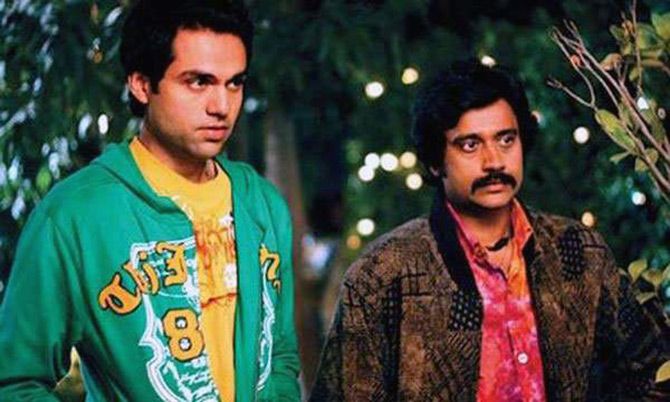
As Abhay Deol told us, he found this challenge attractive, and was one reason why he took up the film.
The actor also has good memories of working with Manu and Faraz while shooting Oye Lucky, and likewise.
"Abhay gives space and freedom to actors because he knows it will be good for the film," says Manu.
"Abhay gives a lot of beautiful inputs, not just for dialogues, but also in acting. Eighty percent of the film is based on the script, 20 percent is improvisation. When I deliver dialogues, I change them. I don't stick to what is written by me," Manu adds.
"Likewise," he says, "Abhay also changes things for the better of the film. Sometimes I write long dialogues, but Abhay changes it to one line. There is a hidden writer in him."
Abhay, Manu reveals, is very moody.
"I am older than him, but sometimes I get scared of him. What if I go to him in my excitement and say, 'Let's read the scene' and he says, 'I don't want to!' Manu says with a laugh.
"Abhay is a realistic actor," says Faraz. "When Manu wrote the script, I could only imagine Abhay doing it. Abhay is very choosy, but I knew he would like it, and rightly so. When we narrated it, he said yes immediately."
"Abhay is very particular about the script and characterisation," Faraz adds. "He is very particular about continuity; few actors are like that. Before he does a scene, he always checks what was before and after the scene."
"He maintains a graph of his character. He comes on the sets on time and is very particular about how many hours he will put in."
Faraz reveals why he cast Patralekhaa. "I liked her performance in Citylights and wanted someone like her for my film. But it was my producer who suggested her name."
"I did not tell Manu that I was going to cast him in the film, as I did not want that to influence the script. But I had decided right at the beginning because his combination with Abhay had really worked well in Oye Lucky," Faraz adds.
"Being an actor is easier for me," says Manu, "I follow the school of realism. I don't believe in heavy dialoguebaazi. I feel conversations should be like a common man's."
"Dialogues like 'Jau, pehle uss aadmi ka sign leke aao'. I respect those writers, but I am not from that school of thought," says Manu, making a reference to Salim-Javed's immortal dialogue from Deewar.
"I am confident about our film. It is for the masses," says Faraz. "It is a comedy and Abhay Deol will dance in it. That's the USP of my film."
"The horror comedy is a hit genre in the West, but here, it has never done well. Golmaal Again was a horror comedy and it was a blockbuster. But it was the Rohit Shetty signature slapstick comedy," says Faraz.
"My horror comedy is realistic."









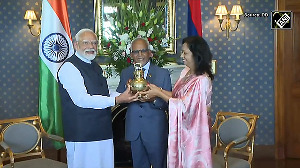
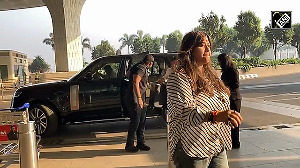
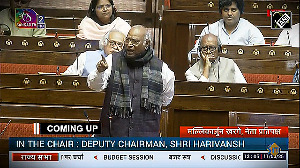
 © 2025
© 2025